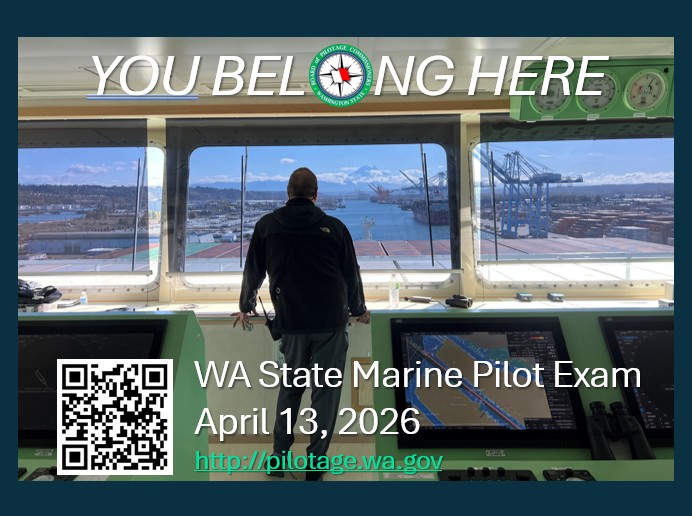On the second day of the Women Offshore Conference, a two-part workshop brought together attendees to talk about an overarching concept in the industry that does not affect just women, but all mariners; bystander intervention.
Throughout the sessions, hosted by Ally Cedeno, the founder of Women Offshore, the attendees discussed how we could change industry and company culture so that bystanders could be more comfortable and motivated to intervene in conflicts they see arising. We also posited on creating clear, easily accessible pathways and procedures for doing so. The three questions asked of the attendees who were grouped together were; how can we change the culture so that bystanders intervene, what should companies and individuals do, and what can be done starting today? Many groups had creative and clever ideas regarding changes to be made for women’s safety at sea.
Provide the Necessary Training
The maritime industry employs all types of people from all over the world, and bystander effect may be an unfamiliar concept to someone from a different culture or country, or to someone who is simply newer in the industry. Just knowing about it helps. It was mentioned that companies should equip any vessel or team management with the tools, resources, and training to handle conflicts that arise, while also ensuring HR is notified as appropriate. The ideas regarding training and resource implementation seem as obvious to me as outfitting any vessel with firefighting equipment in case of a fire: it just makes sense.
Actively Build & Promote Value Systems
Another well crafted response called for companies to actively build and promote their value system. Company values must be fostered on every vessel and reflected in each team, down to every individual hired. This could be reinforced by a reward based system dependent on fellow team members nominating individuals they feel model desirable behavior. Workshops or seminars for developing soft skills in order to boost confidence and competence in intervening could also be made available to individuals, or management level team members. Ideally, value systems for a company should be clearly written out, displayed in public spaces, and accessible in physical form. This would support people in demonstrating these values, for when people know that they are surrounded by others who share the same values, they are more likely to intervene if they see something they don’t think is right.
Everyone seemed to share the idea that companies need to produce written word on their values and procedures regarding bystander intervention, as well as create and disseminate clear avenues for reporting.
Create Anonymous Portals for Reporting
In discussing what companies could do to improve circumstances surrounding bystander intervention, one group suggested companies should have anonymous portals where anyone can submit a report, regardless of validity, and it would immediately bypass vessel or team management and goes straight to HR, requiring action and closeout. This could be invaluable to those who feel uncomfortable as a direct result of their superiors, or unsafe on their vessel in general. The anonymity factor has proven in many settings to motivate people to report issues and incidents that they wouldn’t otherwise feel comfortable addressing. Fear of retribution, disbelief, or dismissal can often lead people to do nothing and say nothing. Under the wrong circumstances, this lack of action can cost lives. Providing an alternative method to transparent reporting offers more avenues for those with different comfort levels. Training, as we are already aware, is important within companies at all levels, but we cannot forget to continue improving our scope of concepts to be educated in. Providing training to employees about the bystander effect should become a standard.
Conduct Bystander Intervention Drills
It was agreed that drills should be held for being a bystander who intervenes, as well as the appropriate response to intervention. We do the same thing for fire, abandon ship, and many other lifesaving practices. Bystander intervention and conflict resolution should be treated as life saving tactics. If we as individuals take the opportunity to really think about how we would intervene, including what we want to say and how we want to say it, we proceed with confidence and be ready to speak up when such an issue develops. Drills would provide an excellent opportunity for individuals to allocate clear boundaries, and distinguish ways to diffuse conflict respectfully while maintaining positive open lines of communication.
Another idea was to practice the simple act of verbalizing when you don’t feel safe, or see something unsafe. We aren’t necessarily born with the ability or the words to communicate these things seamlessly.
Along those same lines, discuss with fellow team members your ideas for what should and should not prompt actionable intervention. It is possible bystanders might not be able to decipher whether an individual feels unsafe or uncomfortable. Discussing ideas on what makes you and others feel is unsafe can be extremely valuable. It is also important, when addressing an issue with fellow team members or superiors, to be prepared with ideas and suggestions for resolutions. Be a part of the solution, not just a herald of the issue. Ultimately, we ALL must personally commit to calling out inappropriate behavior when we see it. Cohesively, companies must make clear their intent to foster a culture which supports those who call out a hostile environment and strive to make the workplace a safe environment for all their employees.
Talk about It!
On this day of the conference, we completed the number one suggestion for what we can do to improve things starting now: talk about it! Break the taboo! Normalize bystander intervention and conflict resolution in the industry. For one attendee, just having others share their experiences helped her idealize stronger personal boundaries to start with. A simple conversation went a long way in helping her to protect her emotional and physical wellbeing. Talking about situations in which we felt unsafe helped us recognize what those situations where and what they looked like. For many, this granted the confidence to unapologetically enforce those boundaries.
KEY TAKE-AWAYS:
Companies: Make yourselves approachable. Encourage people to speak up. Give employees the tools and procedures to do so easily, and without fear. Train, train, train. Hold everyone equally accountable, regardless or position or status.
Individuals: Talk with others about their ideas on what constitutes conflict and how they would address it. Roll play in your head and with others the right words to use to be effective and stay positive. Think about the right time and place to address things. Question yourself with verve about the conflict you witness. “Would I want my children to be in this work environment?” or “Would I allow my family, children, or friends to be treated this way without intervening?” When the time comes to intervene, make sure you are in a good frame of mind to do so.
Starting today: Talk about it!







Recent Comments